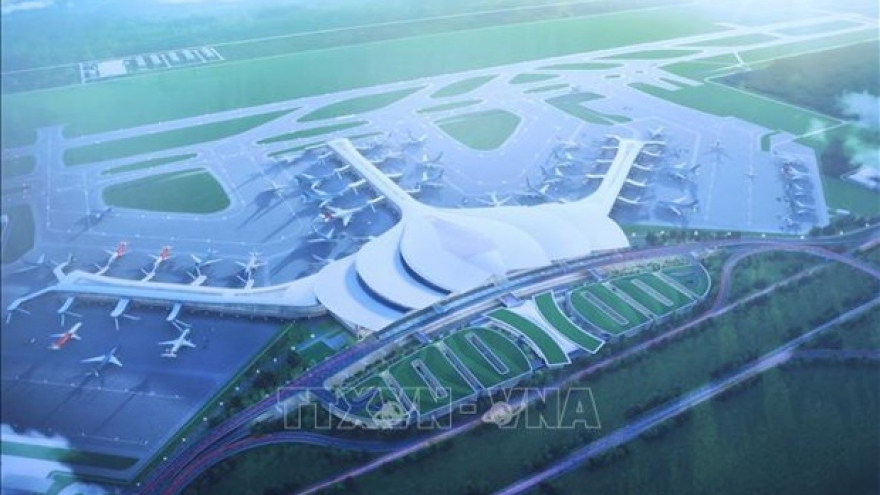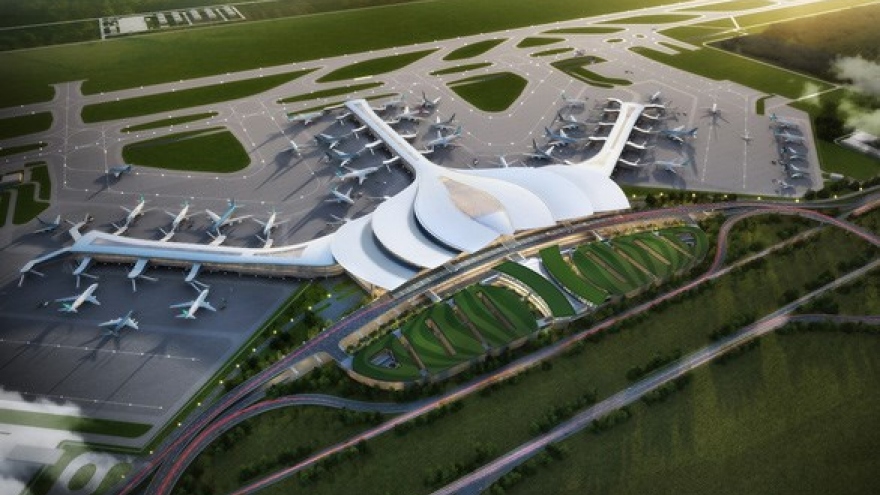Investments in aviation taking off
A new policy offers abundant opportunities for equity investors to step into aviation under the public-private partnership (PPP) model or by securing the right to exploit airports under the management of state-owned Airports Corporation of Vietnam.

In late August, the Ministry of Transport sent documents seeking comments from 28 centrally-governed cities and provinces about the plan to raise private capital resources for aviation infrastructure investment (the August scheme), after nearly two years of studies and drafting.
Two days earlier, the plan was also sent by the authority (MoT) to local airlines, as well as Sung Group and IPP, two major businesses that have made successful ventures into aviation infrastructure investment.
The plan was jumpstarted by the MoT in 2019 and first submitted to the prime minister for consideration this March. In June, through Dispatch No.4023/VPCP-CN, Deputy Prime Minister Le Van Thanh asked the MoT to consolidate the project to iron out solutions on decentralising airport management and raising resources from localities and assorted economic sectors to spur investment into aviation infrastructure development.
Compared to the scheme submitted in March, the August scheme was considered by industry experts to bring enormous opportunities for private businesses to join aviation infrastructure investment.
Accordingly, instead of exercising “tight control” as they do now, the MoT would gradually decentralise airport management for the local government with a view to diversifying investment sources as well as easing pressure on the state budget and state-owned enterprises in respect to aviation infrastructure investment development.
In light of the August scheme, the MoT proposes decentralising airport management into three groups based on each airport’s level of importance.
For group 1 airports (international airports of national significance including Noi Bai, Danang, Cam Ranh, Tan Son Nhat, Phu Quoc and Long Thanh), the government continues to retain ownership right through the MoT and the Committee for State Capital Management at Enterprises and assigns ACV to manage and operate Vietnam’s airport system to take on the management and exploitation of these airports as well as raise capital for investment.
For group 2 airports that perform mixed civil and military aviation functions, including Tho Xuan, Chu Lai, Phu Cat and Tuy Hoa, the government continues to hold ownership through the MoT, the Committee for State Capital Management at Enterprises, and the Ministry of Defense. It also assigned ACV to manage, exploit, and raise capital for investment.
For group 3 airports (the remaining airports), the MoT contemplates gradually decentralising the management of these airports to local governments. This will be exercised through the transfer of land use rights and the ownership of facilities at the airports from central bodies to provincial-level People’s Committees in order to maximise their reliance and responsibility while helping to avail of local potential and advantages for airport investment development.
The remaining airports such as Dien Bien, Na San, Cat Bi, Vinh, Dong Hoi, Ca Mau, and Con Dao are located in diverse locations throughout the country.
Le Anh Tuan, Deputy Minister of Transport, said that the Vietnam Civil Aviation Law has no content on decentralising airport management yet.
The MoT, however, has proposed decentralising the management of Cat Bi International Airport to Haiphong People’s Committee in the spirit of ‘learning by doing’ to gradually expand the model.
“While Cat Bi airport has yet to generate profit, it has good potential for development. Besides, Haiphong, with sound economic potential and experience, can support the construction of runways and other facilities,” said Tuan.
Besides this, via the August scheme, the MoT has proposed the government to greenlight the engagement of equity investors at several airports that are still exclusively exploited by ACV.
Accordingly, at group 1 and 2 airports, the ACV would reserve the right to manage, exploit, and raise resources for essential works. Private capital would only be mobilised for service facilities under the direct investment format. Investors would be selected right after the MoT enacts the related circular on bidding procedures.
For group 3 airports, the MoT recommends raising capital from assorted sources through franchising and exploitation rights.
According to Dinh Viet Thang, head of the Civil Aviation Administration of Vietnam, the current laws on the use and management of public assets, PPP investment, and other related regulations would need to be revised to support franchise investment in the sector.
After regulations are brought up to speed, the MoT proposes the trial of franchise investment at Can Tho International Airport.
“Can Tho airport has been chosen for the trial because it has fairly good infrastructure in place that would allow the investor to focus on improving management and upgrading service facilities to better service quality as well as other works of high added value,” an MoT source said.
Local investors were reported to be keen on overhauling airports. For instance, budget carrier Vietjet wants to invest in Chu Lai, Cat Bi, Tuy Hoa, and Dien Bien airports, while IPP Group wishes to ventures into Phu Quoc and Tuy Hoa airports, and Vingroup intends to invest in Chu Lai airport.
According to Mai The Vinh from the Centre for Transportation Public-Private Partnership Policy of the US’ George Mason University, PPP investment in airport terminals is the prevailing trend in global infrastructure investment due to its high financial security.
“Besides fresh money streams like passenger service fees or landing fees, airport operators also have other stable income sources from non-aviation services such as from leasing out terminal space or selling duty-free goods,” said Vinh.



